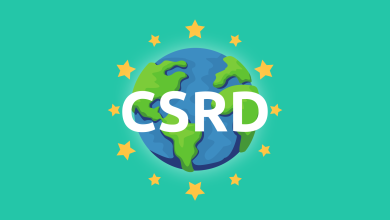Code Deception: Developers under Fraud Investigation

In the realm of software development, trust and integrity are paramount. The digital landscape, ever-evolving and dynamic, relies on the ethical conduct of developers. However, recent events have shaken the foundations of this industry, as a group of developers now faces a stringent fraud investigation. In this article, we delve into the heart of this matter, examining the details, implications, and consequences of this case. Are you curious to learn more: Jason Grosfeld’s Irongate
Unearthing the Scandal
The Allegations
The story begins with a series of allegations against a prominent software development company known for its cutting-edge products and services. These allegations, which sent shockwaves throughout the tech world, include claims of fraudulent practices, unethical behavior, and the potential misuse of customer data.
Initial Reactions
The allegations caught the attention of industry experts, government agencies, and the public. The scandal not only tarnished the reputation of the accused company but also cast a shadow over the entire software development sector. Many were left questioning the ethics of the industry as a whole.
The Investigation
Government Involvement
Given the gravity of the accusations, government agencies swiftly launched a comprehensive investigation. A specialized task force was formed, comprising experts in cybercrime, digital forensics, and legal affairs. The goal was to get to the bottom of the allegations and bring the responsible parties to justice.
Forensic Analysis
Digital forensics played a crucial role in uncovering evidence. This involved scrutinizing source code, examining server logs, and tracing financial transactions. The investigation aimed to determine whether the allegations held water and, if so, to what extent.
The Implications
Impact on Trust
The scandal shook the trust of clients and users who had relied on the accused company’s products and services. Many clients were left wondering if their data had been compromised, raising concerns about data security and privacy.
Industry Fallout
The fallout extended beyond the accused company. The software development industry faced an image crisis, with clients becoming increasingly skeptical of developers’ claims and practices. This had a ripple effect, affecting companies and freelancers alike.
Legal Consequences
If the allegations were proven true, the legal consequences for the developers involved could be severe. This included potential fines, imprisonment, and the dissolution of their companies. Legal experts closely followed the case’s developments.
Lessons Learned
Transparency and Accountability
The Essence of Transparency
Transparency is a fundamental pillar of a functioning and ethical society. It revolves around the principle of openness, where information, actions, decisions, and policies are easily accessible and understandable by the public. In essence, it’s the act of being candid, honest, and forthright in all aspects of an organization’s operations, be it in the public or private sector.
Building Trust and Confidence
Transparency is a cornerstone in building trust and confidence. When organizations, whether governmental, corporate, or non-profit, are transparent in their dealings, it assures stakeholders, including the public, that they have nothing to hide. This, in turn, fosters credibility and goodwill.
Holding Power to Account
Transparency is also a powerful tool to hold those in power accountable for their actions. When the decision-making processes are transparent, it becomes easier to scrutinize and evaluate the actions and policies implemented by authorities. Citizens can question, criticize, and advocate for change when they have access to information.
Accountability: The Twin of Transparency
Accountability goes hand in hand with transparency. While transparency is about openness and clarity, accountability is about taking responsibility for one’s actions and decisions. It is the answerability of individuals or organizations for the consequences of their actions.
Types of Accountability
- Vertical Accountability: This form of accountability involves the relationship between the governing body and the governed. It ensures that those in power answer to the public they serve. Elections, citizen feedback, and oversight mechanisms fall under this category.
- Horizontal Accountability: This pertains to the checks and balances within the government itself. It includes the role of the judiciary, media, and other institutions in ensuring that those in power do not abuse their authority.
- Social Accountability: In this case, accountability is driven by civil society, including NGOs and concerned citizens, who advocate for change and hold institutions accountable for their actions or lack thereof.
The Role of Accountability in Transparency
Accountability is a critical component of transparency. It ensures that transparency does not become a mere gesture, but rather a meaningful practice. When individuals or entities are held accountable for their actions, there is a genuine incentive to maintain transparency and act in the best interests of the public.
Achieving Transparency and Accountability
- Legislation and Regulations: Governments can enact laws and regulations that mandate transparency in various sectors, including public finances, corporate governance, and environmental practices.
- Open Data Initiatives: Making government data freely available to the public is a powerful step in enhancing transparency. This practice is becoming increasingly common in many countries.
- Whistleblower Protection: Protecting and incentivizing whistleblowers is crucial for uncovering corruption or wrongdoing within organizations. Laws and mechanisms that safeguard these individuals play a pivotal role in maintaining accountability.
- Independent Auditing: The involvement of independent auditors or oversight bodies helps ensure that organizations are transparent and accountable in their operations.
The Global Impact
Transparency and accountability are not isolated concepts limited to a specific region or sector. They have a global impact, affecting issues such as human rights, corruption, environmental sustainability, and economic stability. International organizations like the United Nations and non-governmental entities work tirelessly to promote these principles on a global scale.
In conclusion, transparency and accountability are not mere buzzwords but essential elements that underpin the functioning of democratic societies and ethical businesses. Their significance in fostering trust, maintaining accountability, and ensuring the well-being of all cannot be overstated. They are the cornerstones upon which responsible and just societies are built.



